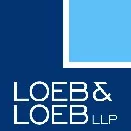Official sponsors of the 2012 Olympics reportedly spent billions of dollars to associate their brands and products with the London Games dollars that the sponsors said they hoped will yield a high return for their significant investment and dollars that are absolutely crucial to the huge task of staging the Games. About 40 percent Olympic revenues come from commercial sponsorship. As a result, the International Olympic Committee (IOC) and its related entities endeavor to protect the investments of their commercial partners, sponsors and supporters through restrictions, limitations and sanctions aimed at preventing the marketing efforts of "unofficial" advertisers.
Ambush marketing defined by "The Olympic Marks and Imagery Usage Handbook" as "a planned attempt by a third party to associate itself directly or indirectly with the Olympic Games to gain the recognition and benefits associated with being an Olympic Marketing Partner" is prohibited. The IOC has comprehensive rules to prevent the practice, as well as initiatives to enforce those rules, including requiring the host city to implement specific measures to control ambush marketing during the course of the Games in and around Olympic venues.
Revenue is the biggest reason, of course. Companies invest billions to become officially associated with the Olympic brand either through The Olympic Partner program (TOP), the IOC's worldwide sponsorship program, or through agreements with the applicable local organizing committee. Allowing companies that don't pay for the privilege to reap the same rewards would eventually dampen the enthusiasm for and the revenue from official sponsorship opportunities.
Another stated reason is the attempt to preserve the non commercial look and feel of the games. Vastly different from sporting events today where sponsorship opportunities exist for naming/branding on almost every surface, from playing venues to players themselves the Olympics maintain a policy prohibiting advertising on playing fields as well as in areas immediately surrounding the venues. Official sponsors are subject to these and an array of other rules and regulations governing marketing and advertising associated with the Olympic Games.
Despite these restrictions and regulations or perhaps because of them the major worldwide partners received valuable commercial advantages, including international brand recognition and exclusive opportunities to provide goods and services at the Games. For example, all ATMs were Visa ATMs and only McDonald's was permitted to sell fries (chips) as a stand-alone menu item.
The controversial Rule 40, newly enacted for the London games, is another restriction designed to prevent advertisers who are not official sponsors of the Games from ambush marketing using an existing sponsorship relationship with an athlete as a springboard to capitalizing on the Olympics "brand" for their own benefit. Rule 40 prohibits the use of names and images of athletes in advertising and promotions for a blackout period during the games and three days after the closing ceremonies and only official Olympic sponsors can obtain a waiver under the rule.
Rule 40 not only restricts athletes from appearing in advertising and promotions, but also from mentioning their individual sponsorships, including in social media, or having branded logos on their uniforms (other than those of official team sponsors) when they compete. Some athletes, including members of the U.S. track and field team, have been vocal in their opposition to the rule.
Rule 40 penalizes the athlete, not the advertiser, and the penalties include both fines and the ultimate sanction disqualification and the resulting loss of medals. The rule landed record breaking U.S. swimmer Michael Phelps in hot water literally and figuratively. Phelps reportedly secured a lucrative advertising contract with Louis Vuitton. Photographs by famed photographer Annie Leibovitz, including one featuring Phelps posing in an antique bathtub, wearing a swimsuit, goggles on his head and one of advertiser's signature bags to the side, were part of a campaign that launched Aug. 16, after the end of the Rule 40 blackout period. The ad campaign violates no Olympic rules. But an Aug. 13, "leak" of the photographs on several Internet sites could be deemed in violation of Rule 40. Phelps and his agent Peter Carlisle have reportedly denied leaking the photographs and any violations of Rule 40. In an interview with The Associated Press, Carlisle asserted that Phelps had not authorized or permitted the use of the photographs and, therefore, did not violate Rule 40.
Carlisle also asserted that "dozens" of "unauthorized" uses of athletes' names and images occur during every Olympics.
Some "unofficial" companies do manage to navigate the rules designed to prevent ambush marketing, garnering the benefits of an association with the Olympics, often to brilliant effect. One such marketing gambit was Nike's decision to color the brand's Flyknit running shoe a signature neon yellowgreen hue. The company calls the color Volt and reportedly asserts that it is scientifically proven to be the color most visible to the human eye. About 400 Olympic athletes reportedly wore the shoe, creating what has been termed one of the "iconic images" of the games. Nike's concurrent advertising campaign "Find Your Greatness" focused not on its sponsored athletes, which would have put those athletes in violation of Rule 40, but on "everyday athletes," all in locations called "London" (London, Ohio; East London, South Africa; London, Canada; and the "London School," for example).
While the question of whether Rule 40 will remain in the Olympic rule book for future games is, as of right now, unanswered, the challenge of controlling marketing that capitalizes on the power of a brand's association with the Olympics whether official partnerships or unofficial marketing designed to generate perceived associations remains one with both laudable goals and controversial results.
The content of this article is intended to provide a general guide to the subject matter. Specialist advice should be sought about your specific circumstances.

